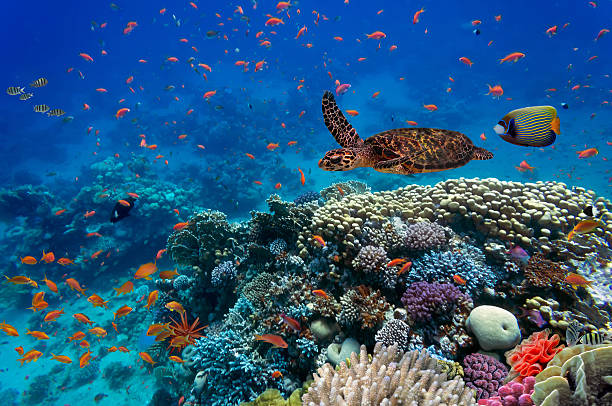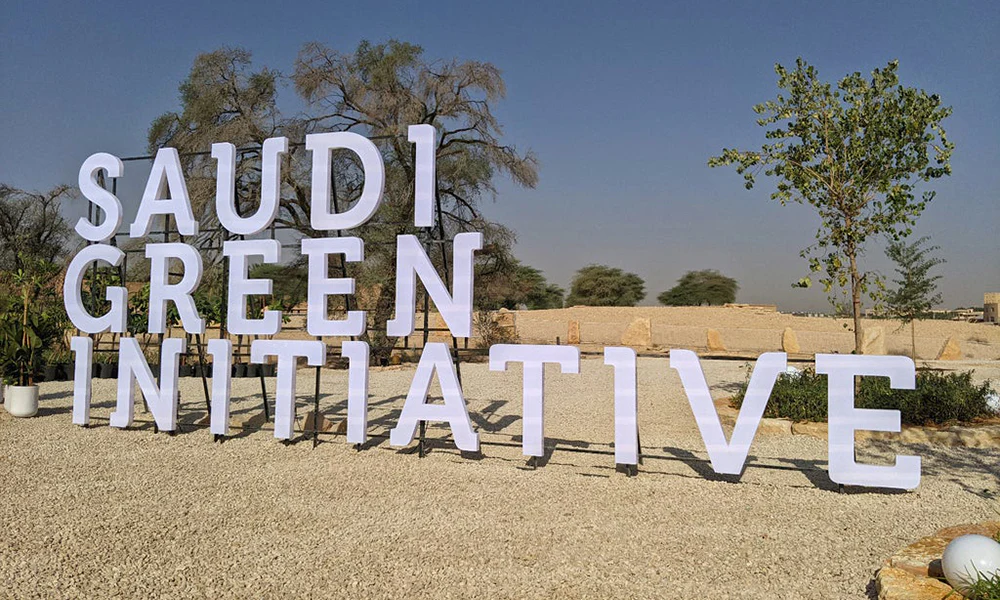Introduction
Saudi Arabia’s Green Initiative, launched in 2021, is a bold commitment to sustainability and climate action. Aimed at reducing emissions, restoring ecosystems, and diversifying the economy, the initiative is central to the Kingdom’s Vision 2030. As of 2025, significant strides have been made across various environmental sectors.
1. Renewable Energy Expansion
Saudi Arabia has connected 4.1 GW of renewable energy to the grid, powering approximately 790,000 homes. With 44.2 GW of renewable energy under development, the Kingdom is on track to meet its 50% renewable energy target by 2030. These efforts are pivotal in transitioning from fossil fuels to sustainable energy sources.
2. Afforestation and Land Rehabilitation
The Kingdom has planted over 100 million trees and rehabilitated more than 118,000 hectares of degraded land. These actions aim to combat desertification, improve air quality, and enhance biodiversity. The goal is to plant 10 billion trees and restore 40 million hectares of land in the coming decades.
3. Marine and Terrestrial Conservation

Saudi Arabia has protected 18.1% of its land and 6.49% of its marine areas, with plans to increase these figures to 30% by 2030. Conservation efforts have led to the reintroduction of species such as the Arabian oryx and the red-necked ostrich, marking significant achievements in wildlife preservation.
4. Carbon Capture Initiatives
In collaboration with Siemens Energy, Saudi Aramco launched its first direct air capture unit, capable of removing 12 tons of CO₂ annually. Plans are underway to develop a larger facility in Jubail to capture 9 million tons of CO₂ per year by 2027, underscoring the Kingdom’s commitment to reducing greenhouse gas emissions.
5. Green Hydrogen Development
Saudi Arabia is advancing its position as a leader in clean hydrogen production. The NEOM project aims to produce 600 tons of green hydrogen daily by 2026, utilizing renewable energy sources. This initiative aligns with the Kingdom’s strategy to diversify its energy exports and reduce reliance on fossil fuels.
6. Sustainable Urban Projects
The King Salman Park in Riyadh, currently under construction, is set to become one of the world’s largest urban parks upon completion. Spanning over 16 km², the park is part of the Green Riyadh initiative, which aims to increase green spaces and improve urban air quality.
7. Investment in Green Economy
The Saudi Green Initiative has attracted investments exceeding SAR 705 billion (approximately USD 188 billion) into over 80 projects. These initiatives encompass renewable energy, afforestation, carbon capture, and sustainable urban development, contributing to the Kingdom’s economic diversification and environmental sustainability goals
8. Public Engagement and Education

The establishment of Saudi Green Initiative Day highlights the Kingdom’s commitment to raising environmental awareness. This annual event showcases ongoing projects and encourages public participation in sustainability efforts, fostering a culture of environmental responsibility among citizens.
Conclusion
Saudi Arabia’s Green Initiative represents a comprehensive approach to environmental stewardship and sustainable development. Through substantial investments, innovative projects, and active public engagement, the Kingdom is making significant progress toward its ambitious climate goals. As these initiatives continue to unfold, Saudi Arabia is poised to play a pivotal role in global efforts to combat climate change and promote sustainability.
Saudi Arabia’s Green Initiative marks a significant turning point in the Kingdom’s environmental policy. While challenges persist, the progress made thus far demonstrates a commitment to sustainable development and climate action. As the Kingdom continues to invest in green technologies and initiatives, it sets an example for other nations striving to balance economic growth with environmental responsibility.
Despite these achievements, challenges remain. The Kingdom’s reliance on oil exports continues to pose economic and environmental challenges. Balancing the transition to renewable energy with the preservation of its oil industry is a delicate task. Furthermore, global climate negotiations have highlighted the need for more robust international cooperation to address environmental issues effectively.
Abdulaziz Kushalnagar, Respected Expat from Karnataka, Passes Away in Riyadh After 35 Years



